- Home
- William Bell
Julian Page 3
Julian Read online
Page 3
Henry consulted his watch. “We’ve got lots of time. Hit the ice, see how it goes.”
Aidan jammed his gloves under one arm, grabbed his stick and made for the door.
Henry called out, “You had to pick a playoff game day, didn’t you?”
——
On the way home that night, Henry’s displeasure with Aidan was eased by their win. The Mustangs had taken the game by one goal, scored late in the third period. Aidan had managed only two short shifts, his hand throbbing wickedly as he stickhandled. The team’s place in the tournament final round was now assured, and they had two days off before the gold medal game.
If “off” was the right word. Henry had already laid out a practice schedule that filled every minute of the weekend—long distance runs through the streets, drills on the ice, analysis of plays—and had forbidden any social life for the players until after the final game.
No problem, Aidan thought. I don’t have a social life.
Later that night, Aidan lay in bed, a dull ache pulsing in his bandaged hand. He thought about the upcoming playoffs and what they meant to him. He could still recall the early days of his career and the first time he had managed to stickhandle the puck from one end of the ice to the other without losing it. He was ten years old, and from that moment he was hooked. He was a latecomer but soon made up for it. He practiced hard, developed his skills, strength and timing. For him, nothing could match the thrill of a rush down the ice, the exhilaration of dodging an opposing forward and laying off a perfectly timed pass that whizzed up the ice and intersected the path of his teammate, ready to flip it into the net.
Aidan kept one secret to himself. When a play unfolded like that, when the pass connected or when he himself shot the puck and the red light flashed, the goal was secondary. It was the perfection of the play, the rightness of it, that thrilled him, goal or no goal.
He was good—his record proved it. His teammates liked to play on his line because he passed more often than he shot, sometimes even when he had a clear shot on the net. His unselfishness made him popular on the team—even if they thought he was a little strange, with his long silences, his books, his reluctance to join in pranks and horseplay.
He kept himself apart for a reason. Making friends or becoming attached to his fosters had led to pain and grief when CAS moved him to another household. He had learned to insulate himself from loss. The ice was the only place where he allowed himself to dare, to take risks, knowing that, unlike his life, a hockey game was predictable. There were rules and patterns he could rely on.
Lately, or for the last year or so if he was honest, he had begun to tire of hockey and its demands on his life and attention. The game was a good friend, but one who never gave him time to do—or be—anything else. Even before the day at the gallery, when he had felt something shift inside him, his attitude to the game had changed.
As Henry had hoped and predicted—although Aidan’s injury had shaken his confidence a little—the tournament trophy was carried off the ice and into the dressing room by the Mustangs’ captain, Sebastian Vaughan. Aidan was pleased and excited for the guys on the team and for Henry, who had two loves in his life—his family and his team. Although Aidan’s wound had kept him from playing his best—he had fumbled more than one pass that night—he had managed to score two points, both assists, and had shone at forechecking when the Mustangs had to kill penalties.
But the next evening at supper, Beryl was not herself. A light glowed in her eyes and she joked with Aidan and the twins even more than usual. Henry had called to tell Beryl that he’d be late for dinner and that they should go ahead without him. For once, Beryl didn’t grumble and bang dishes around.
Something was up. Always sensitive to the threat that came with change, Aidan prepared himself for bad news.
FOUR
AIDAN LEFT SCHOOL the next day right after art class, his graded Van Gogh assignment stuffed into his backpack. Sayers had given him an A, then deducted a full grade for what she called, with a smile she’d been unable to hide, his “unauthorized exit” from the field trip. Aidan hadn’t bothered to complain. He headed down Etobicoke Street toward home, pulling up his collar against the bitter wind that made the bare branches of the trees along the road click mournfully.
He remained ill at ease about Beryl’s behaviour the night before. She had hinted once again about “big news.” Why couldn’t she just come out with it? He walked along, hating the uncertainty, chafing under the reminder that his life was still in the hands of other people.
He became aware of a car creeping along behind him, the purr of its engine barely audible above the huffing of the wind in his ears. The sedan kept pace with him. Aidan flashed back to the kidnap attempt a week before, involuntarily flexed his injured hand. He stopped, ready to dash back to the school.
The car came to a halt and a rear window slid down. A voice floated from the back seat. “Excuse me. Aidan Boyd?”
A man’s voice, deep, calm. Neutral, the way you’d say, “Good day,” to a stranger passing on the sidewalk. Aidan looked the car over. It was neutral too, neither shiny nor dirty; neither new-new nor old; the windows clean enough to reflect the clouds swirling in the sky. Keeping his distance, he bent and looked inside. It was the stranger in the dark topcoat who had picked up the boy outside the coffee shop, then sped off, leaving Aidan bleeding in the parking lot.
“May I speak with you?” the stranger asked politely, his words coloured by an English accent.
“Me? What about?”
“Please don’t be alarmed. We met briefly not long ago.”
“No we didn’t.”
“Well, no, not formally, I agree. I regret that the circumstances called for a rather abrupt departure. At any rate, I’ve been sent by someone who desires very much to meet you.”
“Who? What about?”
He smiled. “You seem to have saved the life of someone my employer holds dear. I assure you, I’m no threat to you, despite this somewhat unorthodox meeting.”
Aidan stood silently, his hands in his jacket pockets.
“Come along, please. I’ll have you back here—or anywhere you choose—in no time.”
The car door opened, allowing Aidan to see the man better. His black hair was combed straight back from a high forehead, his skin tight across his face. The hand resting on the car’s window frame was uncallused, the skin smooth, the nails manicured.
“I didn’t save anyone’s life,” Aidan countered.
“Wesley tells it differently, Mr. Boyd.”
“That’s not my name.”
The man’s eyebrows rose slightly. “I see. Then what should I call you?”
“Aidan.”
“Very well. I am Mr. Chang.”
Aidan’s adrenaline ebbed as his alarm faded and curiosity took its place. What was this all about?
“How did you find me?” he stalled.
“Wesley remembered your jacket. It was quite easy to track you down. Although everyone seems to think your name is Boyd, probably because that is the name printed in block letters on the back of your hockey team coat.”
“It’s a long story.”
“And an interesting one, I’m sure. I’d like to hear it sometime. But at present, here is the situation: I have been tasked to find you and bring you to my employer. I have completed half of my assignment. Should I fail at the second half, that worthy gentleman will be very upset with me. So … will you come? I think I can promise that you won’t regret it.”
Aidan recalled the stricken look on the kid’s—Wesley’s—face when he wet his jeans, his terror overshadowed by his humiliation. He had tried to bluff his way out of it by appearing tough and indifferent. Aidan had seen the relief in his eyes when the car roared into the parking lot—the same car idling at the curb now, a few metres away.
“Is Wesley okay?” he inquired.
“He’s fine. And he regrets … well, I wish he could tell you himself. Please come. I mean you no har
m,” the tall man added, his voice as smooth as oil.
The smart thing to do was to refuse the request and go home. The whole situation was a little crazy. Why risk it? What was the point? On the other hand, maybe it was time for a change. Aidan approached and the man slid across the back seat. Aidan got in and pulled the door closed.
“Outstanding,” Chang said, keying his cellphone and pressing it to his ear.
The car’s interior smelled of leather and aftershave. Chang did not introduce the driver, who piloted the vehicle silently and smoothly, his square hands at ten and two on the steering wheel, his thick wrists at odds with the snow-white cuffs protruding from the dark blue sleeves of his suit. He drove south to the expressway, then along the lakeshore. After a while the car turned north and Aidan recognized the avenue where he had strolled along, free, after parting company with his school’s field trip. He saw the intersection with the huge Happy Garden restaurant squatting on the corner, and was surprised when the silent driver made a left at the traffic light, then pulled into the restaurant’s parking lot.
“If you’d be so kind as to come with me,” Chang said as he got out of the car. “You may leave your bag in the car.”
Aidan followed him through the side door of the building and down a wide corridor, its walls scraped and gouged—probably by the serving carts he saw standing idle in one of the rooms off the hall. He passed other rooms ringing with harried voices and the machine-gun clatter of knives on wooden chopping blocks.
He followed Chang up a carpeted staircase and along another corridor. At the end of the passage Chang stopped before a narrow elevator door and thumbed the keypad. They rode the elevator up a few floors, then the doors rolled open to reveal a spacious office panelled in dark wood, with a wide picture window. Three leather chairs had been arranged before a cold fireplace. Large fringed rugs covered most of the hardwood floor.
Chang removed his overcoat and draped it over the back of a chair. Unbuttoning his suit jacket he said, “Please take a seat.”
Already second-guessing his decision to come, Aidan lowered himself into a chair, the leather creaking under his weight.
As if on cue, a large section of panelling swung into the room and a young man dressed in a black waiter’s uniform entered, balancing a tray with a red clay teapot and three cups on it. He set the tray on a low table by the hearth and disappeared as silently as he had come. Chang sat down, adjusted his cuffs, consulted a thin gold wristwatch and settled back.
“When Mr. Bai arrives,” he said, “don’t offer to shake hands. And don’t bow.”
“Why would I bow?”
Chang didn’t reply. Aidan looked around. What was he doing here? What did they want from him? His thoughts were interrupted by the click of a door latch. When Chang sprang to his feet Aidan rose too, as an elderly man appeared in the door frame. He was small in stature, more than a head shorter than Aidan, with snowy hair cut short and the bright eyes of a mouse—although there was nothing mouselike in the aura of authority that seemed to seep from him. Eyes on Aidan, he said something in Chinese.
“Mr. Bai has introduced himself, Aidan,” Chang said, then broke into Chinese for a sentence or two, in which Aidan heard an approximation of “Boyd.”
Bai gestured toward the chairs and they all sat down.
“Tell him my name isn’t Boyd,” Aidan said.
“From now on,” Chang replied, “address yourself directly to Mr. Bai. I shall translate for both of you. Do not speak to me.”
Bai had taken the chair opposite Aidan. He studied Aidan intently. Aidan did his best to hold the old man’s gaze, noting the oval face with its strong features, the expensive fabric of the suit that rested easily on the narrow shoulders, the absence of jewellery, then the intelligent eyes again. He decided that “old man” was the wrong term for this guy. Bai looked over at Chang and nodded. Chang poured tea for the three of them, placing a cup before his employer.
Aidan was struck by the odd formality of it all. A tea party with two strangers in an office above a restaurant. In a voice both calm and reassuring, Bai began to speak again, accompanied by Chang’s simultaneous rendition.
“I am very pleased to meet you, Mr.… Aidan. Welcome to my office. It was kind of you to spare me some of your time. I hope I have not inconvenienced you too much.”
“Why have I been brought here?” Aidan asked bluntly.
“Please forgive the unusual manner in which I have sought to meet you,” Bai continued. “I see you are anxious to return to your own affairs. But if you would allow me a moment or two.”
Bai spoke at length, with Chang providing the English. He thanked Aidan for saving his grandson, Wesley’s, life, showed concern for Aidan’s wounded hand and ended by saying that he was forever in Aidan’s debt.
“I didn’t do anything,” Aidan protested. “Really. I just happened to be there. I reacted out of instinct.”
“Your modesty becomes you” was the reply. “Wesley told me everything, in detail. And he asked me to convey to you his apologies for appearing both rude and ungrateful at the time.”
I’ll bet he did, Aidan thought, remembering the kid’s attitude.
“And,” Bai went on calmly, “we were able to … interview … the man who drove the car that day. We know everything, Mr. Aidan. You will have worked out that the four men attempted to kidnap my grandson, but their plans went wrong—thanks to you. Indeed, you probably saved Wesley’s life. Now, Mr. Chang will explain,” Bai said, nodding to his employee.
“Wesley was born in this city,” Chang began, “but he is Chinese. His reaction when in danger is not to go to the police but to the head of his family, his grandfather. Wesley is Mr. Bai’s only surviving male heir, and therefore more precious to him than his own life. He is now on his way to live in … Europe, where he will be safe. You must understand the enormity of Mr. Bai’s debt to you, Aidan. He wants you to comprehend this. Fully.”
“But—”
“You say you acted by instinct. And yet you stayed with Wesley. You had been knifed, but you didn’t leave him to save yourself.”
“What I’m trying to explain is, I didn’t think about anything, like being in danger or … I just … did what I did.”
“Nevertheless.”
Aidan weighed Chang’s words, but at the same time felt like a phony. He hadn’t been overcome by a duty or desire to save the little kid he saw tearing down the street to get away from four men. He was an athlete; his body was trained to react without thought. Wasn’t that what he had done? Alright, he had felt sorry for Wesley when it was all over. But how could he take credit for it, pretending he was a hero when he didn’t believe he was?
Chang said no more. Bai crossed his legs, his fingertips caressing the chair arms. The silence weighed on Aidan.
“Okay, fine,” he conceded. “Tell him I’m glad I could help, he doesn’t owe me anything, and we’ll let it go at that.”
Chang rattled on in Chinese for a few moments. Bai nodded. Chang turned to Aidan. “Mr. Bai has given me permission to explain further. He has acknowledged his debt to you. Without your help his grandson might have been taken. Or worse. He cannot accept your answer. If you reject his gratitude he will be humiliated. He will lose face.”
Aidan found himself at a loss. So unreal was the position he was in, he had no idea what to do or say. He only knew he didn’t want anything from the old man sitting across from him.
“What should I say to him, then?” Aidan asked Chang. “I don’t want to insult him. I already have, probably.”
“No, not … yet. It’s an old custom with Chinese of Mr. Bai’s generation to refuse a gift two or three times before reluctantly accepting. And showing humility as you have done, saying you aren’t worthy, is also polite.”
“But I’m not being polite. I’m just … saying.”
“I understand.”
Aidan thought for a moment, then turned to Mr. Bai and said, “Thank you. I am glad to know I can rely on your h
elp.”
Bai seemed pleased. “Once again, I apologize for my grandson’s bad manners. He is a naughty boy who has been spoiled and has always had his own way. He has much to learn.”
“He was scared,” Aidan replied.
“Your hand is healed somewhat?” Chang translated.
Aidan lifted his arm, flexed his fingers and wiggled them in answer.
“I am most pleased to know that,” Mr. Bai said. “I hope you allow me to reimburse you for any medical costs you have incurred.”
“You don’t need to,” Aidan said, “but, er, thanks just the same.”
Then Bai stood, indicating that the interview was over. “Mr. Chang will provide you with certain information I would like you to have. He will be your liaison with me. Thank you again, Mr. Aidan.”
After Chang had translated and Aidan had returned the goodbye, the old man left the room. Chang accompanied Aidan back to the car waiting by the door of the restaurant. On the return trip, no one spoke. When the driver turned into Aidan’s neighbourhood Aidan asked him to pull over when they were still a few blocks from the Boyd house.
“I can walk from here,” he said.
Chang looked as if he was about to object, so Aidan cut him off.
“The Boyds don’t know about the, er, incident. They think I cut myself.”
Chang nodded. “I see. Then let me take just a few more moments of your time.”
He drew a business card from his pocket and handed it to Aidan. “My contact information, as Mr. Bai promised. You may call me any time, Aidan. I stress that—day or night, it doesn’t matter. That number is a relay, as it were. Simply tell the person who answers the phone that you need me, then hang up and wait a few minutes. I am never out of touch. Never. Understood?”
Aidan nodded.
“It’s imperative that you think about what Mr. Bai promised you and what it means. He was not simply being polite. He is a man of considerable resource and influence. There are many who would give everything they have to be under his protection.”
“You make him sound like a godfather.”

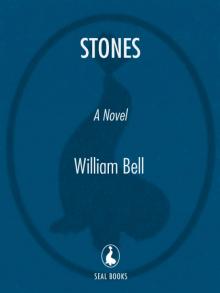 Stones
Stones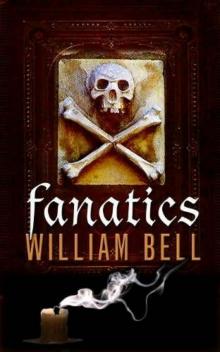 Fanatics
Fanatics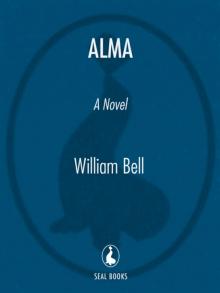 Alma
Alma Speak to the Earth
Speak to the Earth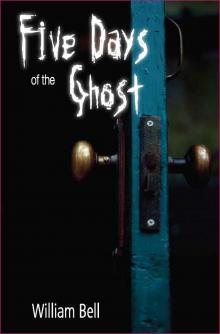 Five Days of the Ghost
Five Days of the Ghost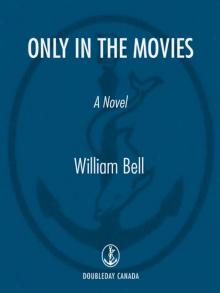 Only in the Movies
Only in the Movies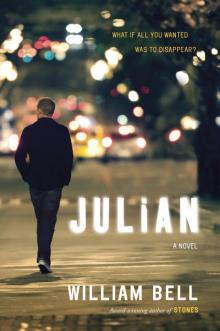 Julian
Julian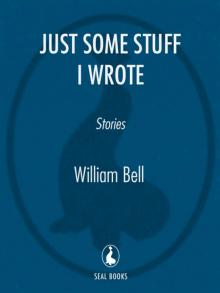 Just Some Stuff I Wrote
Just Some Stuff I Wrote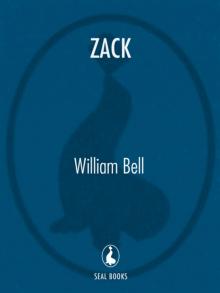 Zack
Zack Forbidden City
Forbidden City Death Wind
Death Wind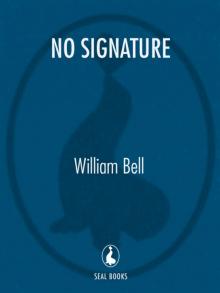 No Signature
No Signature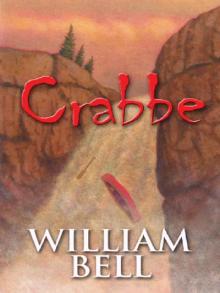 Crabbe
Crabbe